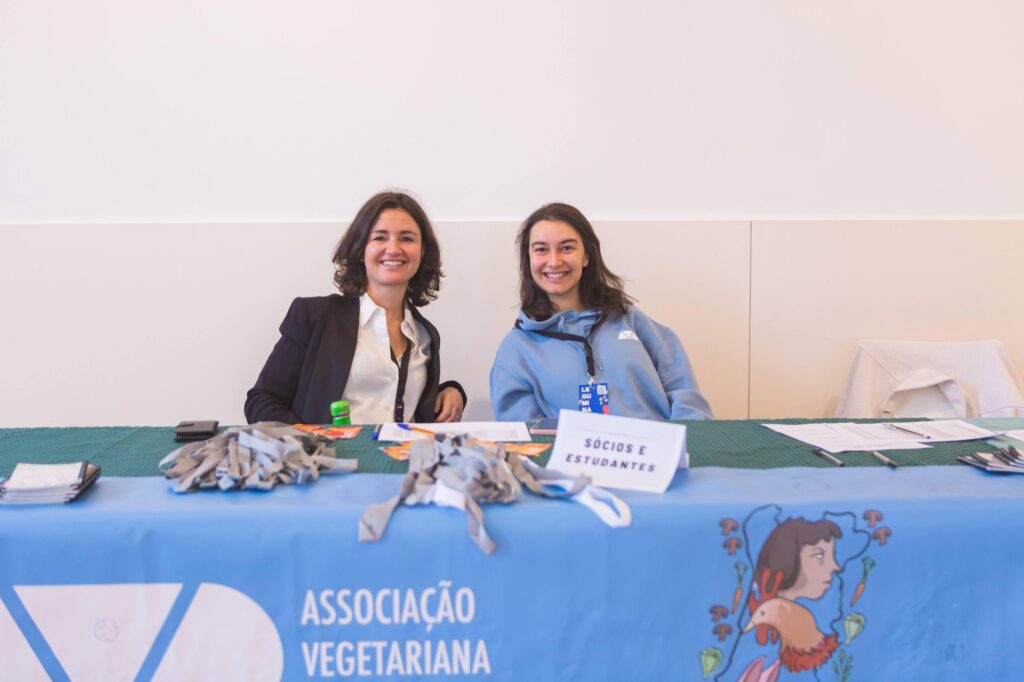6 Mins Read
The Portuguese government has committed to developing a national plant-based action plan as part of its climate strategy. Here’s how it happened.
Already considered one of the most vegan-friendly countries in the world, Portugal is taking a big step towards a low-carbon food system.
In its National Climate and Energy Plan (NCEP), the government has earmarked the creation of a national strategy to reduce meat consumption in favour of plant-based proteins, both to reduce the country’s agricultural emissions, and promote healthier nutrition.
The plan would involve “concrete measures” to boost the production and consumption of plant proteins, with an amplified focus on legumes. The idea is to use this integrated approach to ensure self-sufficiency and food security.
There will be a focus on implementing training programmes and bolstering the supply of plant-based meals in public canteens, as well as reducing food waste. Moreover, the strategy will promote the implementation of short food chains, which would help reduce energy use and emissions thanks to lower packaging, transportation and cooling needs.
The strategy is yet to be developed, but it’s a major win for years of activism from climate groups, and a laudable step by the Portuguese government amid calls for the EU to develop a similar strategy.
So how did we get here?
A concerted, long-term effort

Efforts to convince lawmakers to create a national plant-based protein plan have been ongoing since 2021, when the Portuguese Vegetarian Association (AVP) kickstarted the Proteína Verde project. Over the years, it teamed up with 17 organisations and produced comprehensive reports, a joint letter, and several other documents stressing the need for such a policy.
The consortium made a concerted effort to work together with policymakers – three parties have previously presented proposals to the Portuguese parliament based on the project’s recommendations.
The breakthrough came during the negotiations for the NECP. “We held a meeting with the Portuguese Secretary of State for the Environment and the Secretary of State for Energy at the Ministry of Environment and Energy, where we agreed to collaborate on drafting a document with proposals for changes to the NECP,” explains Joana Oliveira.
She is the former co-director of the AVP, which evolved into ProVeg Portugal earlier this year, with Oliveira taking the helm in the merged organisation.
“Among these recommendations was the proposal to create a strategy promoting plant-based protein consumption,” says the ProVeg Portugal director. “The General Secretariat for the Environment then sent us an official letter indicating that it would take our contributions into account.”
She adds: “Following this, we mobilised citizens to advocate for the inclusion of the plant-based protein strategy by participating in the subsequent NECP public consultation. Their engagement further underscored the importance of this strategy, contributing to its incorporation into the final plan.
“We have since had the privilege of commending the Ministry of Environment and Energy for thoughtfully considering all contributions and evidence.”
Countries like Denmark and South Korea have led the way with government-backed protein transition strategies, and experts have been calling on other countries to follow. Portugal will hope to join that list once its strategy is finalised.
Meat and seafood consumption trends ‘alarming’

There were several reasons why Portugal decided to go ahead with a plant-based strategy – chief among them the energy ministry’s approach of engaging with civil society and considering statistical data, according to Oliveira.
“It recognised the need to address the environmental impact of the agricultural sector, which has been diverging from its national greenhouse gas reduction targets,” she says.
Agriculture accounts for 12% of Portugal’s emissions, 72% of which come from livestock in the form of enteric fermentation and manure management, linked with the release of methane and nitrous oxide into the atmosphere. “Encouraging a shift toward plant-based diets was identified as a key measure to significantly reduce these emissions,” suggests Oliveira.
“The Portuguese Environment Agency, a state body, has also consistently underscored the substantial role of animal farming in national agricultural emissions and has highlighted a troubling trend of rising emissions driven by increasing populations of cattle, sheep and chicken,” she adds.
As Portuguese eating habits increasingly diverge from the Mediterranean diet, public health and environmental organisations are becoming more concerned.
Joana Oliveira, Director, ProVeg Portugal
Portugal is one of Europe’s largest meat consumers, and its leading market for seafood. This presents both challenges and opportunities to “raise awareness about urgent dietary issues”. Apart from the climate footprint, poor dietary habits are among the top five contributors to the loss of healthy life years, and the third-highest risk factor for mortality in Portugal.
“The overconsumption of animal-based products contributes to this situation,” says Oliveira. “These alarming trends and opportunities are beginning to capture the attention of political decision-makers.”
She points out that the NECP doesn’t mention alternative proteins like cultivated meat, yet public acceptance of these foods is high. In fact, the Portuguese are the most welcoming of cultivated meat among EU countries, and also among the most opposed to banning it.
Oliveira adds: “At the same time, Portugal highly values the Mediterranean diet, which prioritises plant-based foods. As Portuguese eating habits increasingly diverge from this diet, public health and environmental organisations are becoming more concerned.”
The legume focus, and what the NECP means for dietary guidelines

This is where legumes come in. Beans have become central to the food conversation this year – not just for their versatility and flavour, but also for their contribution to improving public and planetary health.
“Legumes are quite typical of traditional Portuguese cuisine and stand out as a versatile, healthy and eco-friendly source of plant-based protein. Yet, Portugal produces only 14% of the legumes it consumes,” Oliveira says when asked why the government namechecked legumes in the NCEP.
“The emphasis on legumes in Portugal’s strategy to promote plant-based protein consumption highlights not only their role as a traditional and widely accepted food in Portuguese cuisine, but also their potential for innovation and development,” she explains.
We are collaborating with the country’s main nutritionists’ association to present a proposal in January for updating the national dietary guidelines.
Joana Oliveira, Director, ProVeg Portugal
Being a familiar and culturally significant source of plant-based protein, they can facilitate broader acceptance of plant-based diets among the population. But does this also indicate a lack of confidence in meat alternatives?
“At the same time, legumes are the foundation for many meat analogue products, offering a versatile and sustainable solution for food innovation. One of our key objectives is to foster research and development (R&D) in food products, with a particular focus on legumes,” she says.
“These ingredients are rich in protein and have significant potential for creating new, eco-friendly, healthy and innovative plant-based alternatives. By leveraging legumes, we aim to support the development of products that meet the growing demand for healthy, sustainable food options while respecting local culinary traditions.”
This strategy of showcasing traditional plant proteins as key sustainability and innovation drivers encourages a “diverse range of solutions, from familiar legume-based dishes to cutting-edge meat alternatives”.
This year, several European countries have updated their dietary guidelines to promote plant-based foods. Is Portugal’s move a sign of things to come? “Yes, perhaps,” Oliviera replies.
“The Portuguese Directorate-General of Health recently shared a recommendation on its Instagram to include some meat- and fish-free meals during the week. At ProVeg Portugal, we are collaborating with the country’s main nutritionists’ association to present a proposal in January for updating the national dietary guidelines.”



